In the process of accepting new words from young people, in addition to criticizing the silly and offensive words and sayings that tarnish the purity of Vietnamese, we, especially adults (grandparents, parents, teachers...) should also have a scientific attitude, clarify the bad and bring out the good, look at things fairly, and objectively evaluate the role of young people in contributing to enriching linguistic life and enriching the meaning of Vietnamese in the new era.
Along with the multi-faceted development of modern society, human communication language, especially the communication language of young people, is always fluctuating and changing in both positive and negative directions.
Recently, there have been many phrases from young people that reveal their naivety and innocence. There are even words and sentences that are carelessly and easily put together, distorting the style and purity of writing. Vietnamese, for example: Oach salad, bored as a cockroach, nonsense squash, tyrannical rice grain...

Young people have in common the characteristics of being active, liking new things, not being satisfied with what they have, proactively finding/creating ways of speaking and communicating lively, cheerful, and playful, such as: Like it, do it, perfect, live simply for a peaceful life, solve difficult problems...
Besides, there are many phrases created by young people that contain both new content and interesting meanings, such as: Life is not like a dream; spending lavishly at the beginning of the month, hanging around for instant noodles at the end of the month; crazy love, hasty life; altar speed; virtual network, real prison...
When entering life, especially after leaving high school, young people face many difficulties and challenges on the road ahead. After the age of 18, young people no longer have the protection of their parents and family like they did when they were young, so each person must take responsibility for their own life.
Therefore, young people have a saying "Life is not like a dream", meaning that life is inherently complicated, the journey to the future is not as simple, easy, and smooth as one's subjective dreams and desires, therefore the shallowness, indulgence, superficiality, and chance of young people in studying, training, and working may have to pay the price of failures and mistakes.
Many young people are often generous in spending. The way of spending without consideration that our ancestors used to advise: "When you have, don't be frugal/ When you have all, don't be frugal" has been transformed by today's youth into: "Spend lavishly at the beginning of the month, and spend instant noodles at the end of the month." Spending lavishly is spending recklessly, spending like throwing money out the window, of course, after only a few days, the wallet will be empty. Therefore, after a few days, when the "wallet is full", many young people return to a state of poverty, living day by day on bowls of cheap, low-nutrition instant noodles.
Modern society opens up a civilized, open space for people, in which young people are the ones who approach and come into contact with new things the fastest and most. However, the open communication environment combined with the introduction of foreign cultures is a favorable condition for a fast, hasty, and careless lifestyle, which is also increasing among a segment of young people. Therefore, among young people, there is a saying "Love madly, live hastily", with the implication of a strict warning about a mixed, loose lifestyle that is not suitable for the polite, moderate way of thinking and living of Vietnamese people.
One of the haunting things for many people on the road today is encountering young men, "rich kids" riding motorbikes at breakneck speeds, or seeing speeding drivers in their late teens and early twenties revving their engines, chasing each other on the road like in a strong action movie. For those who ride motorbikes recklessly, regardless of danger, young people have a saying "altar speed", with the warning implication that the faster the speed, the closer the way to the cemetery, the shorter the way to the altar because the risk of casualties is right in front of them.
Nowadays, some people, including young people, spend too much time "living" in the online world , enthusiastically discussing, commenting, sharing, and spreading false, misleading, and even toxic information that sometimes the people involved consider it normal. Immature thinking, rash attitudes, crowd mentality, and "collective stone throwing" on social networks of some people seem harmless, unknown, and unnoticed, but in fact, it is a violation of the law on network security. Therefore, young people have a saying "virtual network, real prison", with the intention of warning those who still think that social networks are virtual spaces, a flea market, saying whatever they want, saying nonsense, then they will definitely end up in jail!
A look at some sayings expressing the new ideas of today's youth shows that, on the one hand, language is not fixed and unchanging, but always grows and develops like social life; on the other hand, life is rich, colorful and contains both good and bad, right and wrong, profound and superficial... in the thoughts, attitudes, concepts, and behaviors of young people in modern society and the integration era have contributed to creating new phrases, new ways of speaking, and new meanings.
In the process of accepting new words from young people, in addition to criticizing the silly and offensive words and sayings that tarnish the purity of Vietnamese, we, especially adults (grandparents, parents, teachers...) should also have a scientific attitude, clarify the bad and bring out the good, look at things fairly, and objectively evaluate the role of young people in contributing to enriching the linguistic life and enriching the meaning of Vietnamese in the new era.
Source


















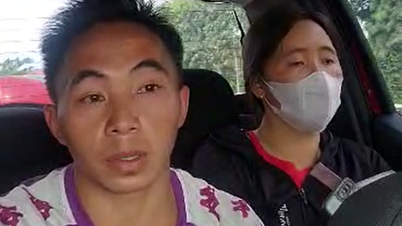


































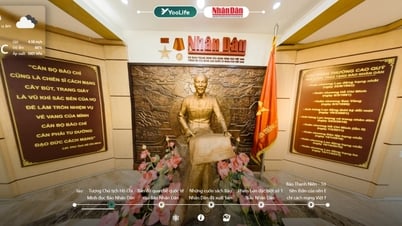



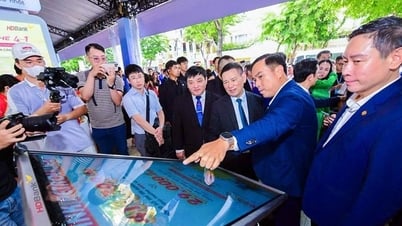



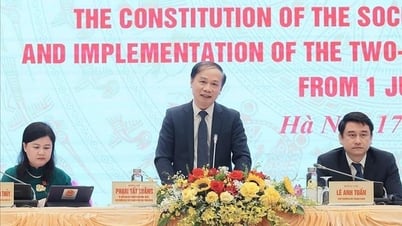










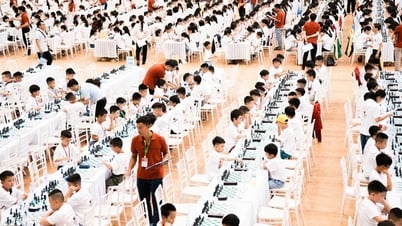
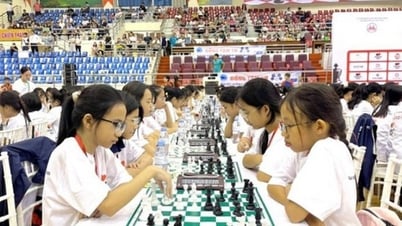



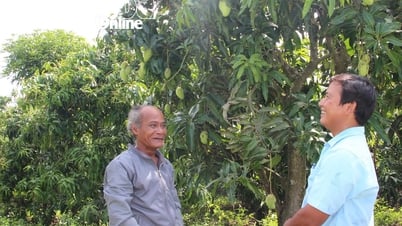





















Comment (0)